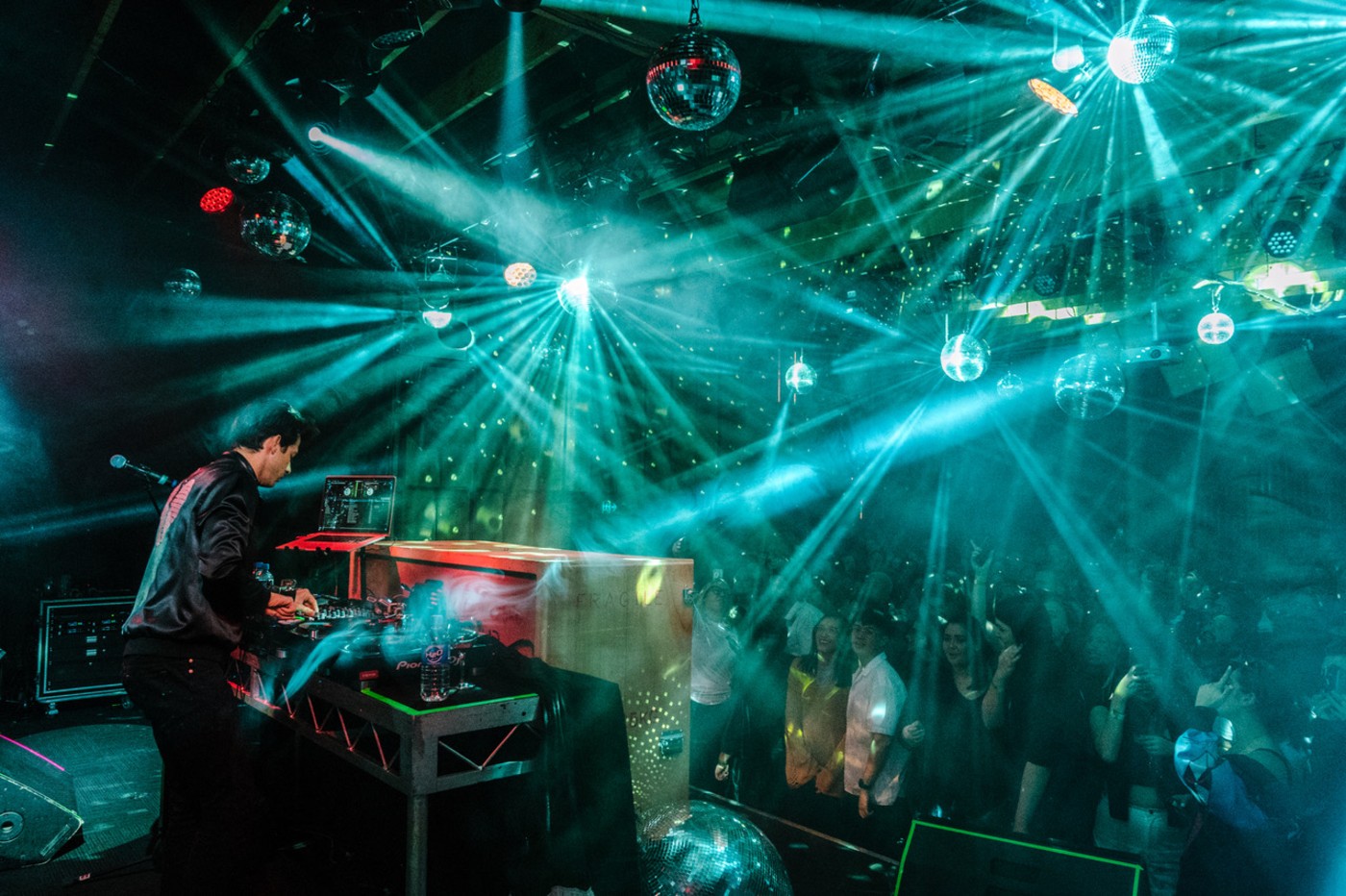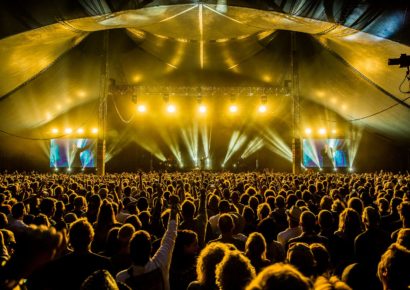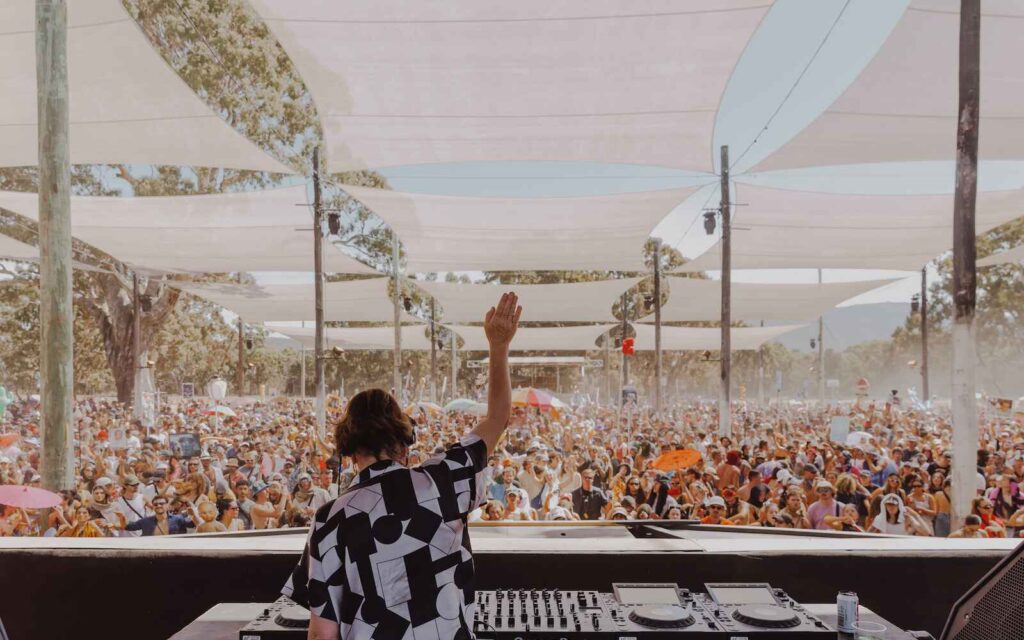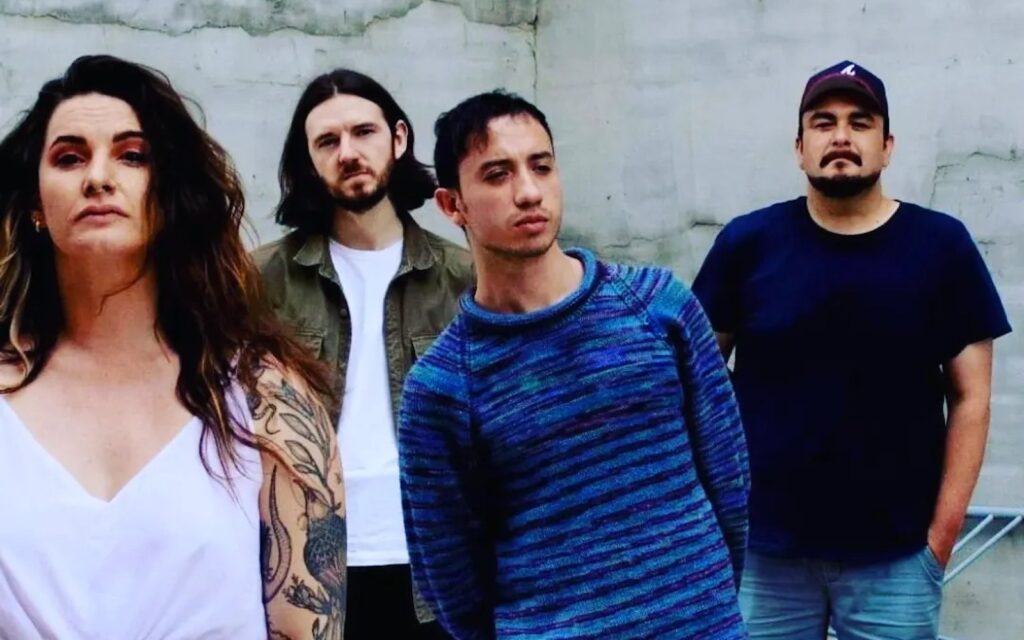Female photographers often face sexism and harassment while photographing gigs.
When you consider key roles within the music industry, you might think of musicians, managers, roadies, promoters and sound engineers. You might not think of concert photographers, however, who often go under the radar for their contribution, but are just as integral to the industry.
According to photographer Michelle Grace Hunder, all concert photographers, regardless of gender, are overlooked.
“We’re kind of like the forgotten part of the industry. Although our photos can essentially be the visual representation of the scene or the industry, the people behind the photos are often the last thing thought about,” she says.
Looking for more music reads? Subscribe to Beat here and we’ll send them straight to your inbox.
Females endure much of that invisibility, with their craft often devalued and their safety compromised.
Hunder has been in the industry for about ten years now, after getting her start photographing small-time hip hop gigs around Australia. She has since moved on to photographing the likes of Billie Eilish, Kanye West and Lauryn Hill, among others.
Throughout her career, Hunder has had many encounters with sexism and harassment. She recalls being “quite forcefully” grabbed from behind while photographing a performance from a balcony above stage.
“I literally grabbed his arm and turned it around and was like, ‘What the fuck are you doing?’,” she says. “I said to him, ‘Would you like to be groped at work?’ and he was like, ‘Oh, I’d fucking love it’.”
Hunder also says that when she first started out photographing the hip hop scene, she was often asked which rapper she was dating.
“Cos, you know, the only reason that I must be here is because I’m somebody’s girlfriend. That was really common when I first started, like, ‘Who are you dating? You must be dating someone’.”
View this post on Instagram
Monique Pizzica and Gabrielle Clement, who have both been in concert photography for five to six years, describe similar experiences of being talked down to and not being taken seriously while on the job.
“There’s a lot of talking down and, ‘If you stand over there, you’ll get a better shot of them doing this’, and I’m just like, ‘I know, I have the camera in my hands’,” Pizzica says.
“Sometimes you just don’t feel like you’re being taken seriously,” Clement agrees.
All three women have also said they knew other women who have experienced sexism or harassment while photographing live performances.
“I have a couple of friends who have, and they’ll avoid certain venues cause they’ve had bad experiences,” says Clement. “We chat among ourselves about what is good and what is not good.”
Both Hunder and Pizzica are part of a private Facebook group called ‘Girls in the Photo Pit’, which was created for female concert photographers. Both have said the group enabled them to talk more freely about their own experiences, as well as provide support for other women.
“It’s just nice to not feel alone, cos pretty much before that group, I was like, ‘Am I the only one experiencing this?’ And you don’t know unless you talk to people, so it feels really nice to just know that you’re not alone,” Pizzica says.
Hunder agrees that when she joined the group she started to realise there were “similar stories” to hers.
“It was a place to vent frustration and feel like we’re all in this together,” she says.
Though female photographers may be openly discussing their experiences with each other, the issue of sexism and harassment they face within their profession is largely overlooked, both within the broader music industry and outside of it.
One of the few academic studies to provide insight into this particular profession is Kyser Lough’s article for the Journal of Gender Studies, ‘Patriarchal pits: the gendered experiences of female concert photographers’.
However, Lough admits that his sample size (which was based in the US and included 18 photographers all up) was too small and narrow to be accurately generalised, and recommended further research into the topic. He also mentioned a lack of overall data on the gender breakdown in music photography.
Many mainstream discussions surrounding sexism and harassment within the creative industry refer to artists, but it’s less often that we see discussions around the experiences of women in other roles, like concert photography.
For Hunder, there was a time where the lack of discussion had more to do with numbers – until recently, there were not enough women in the field to warrant a conversation.
“When I started shooting ten years ago, I don’t remember seeing another female photographer. I mean that’s also genre specific – I was shooting a lot of hip hop – but there just weren’t a lot of female shooters,” she says.
“There was so little space for women that it wouldn’t have even been discussed as an issue, because there were probably like two or three [women] shooting.”
Hunder, Pizzica and Clement agree that it took them a long time to even realise that their negative experiences while photographing gigs might have something to do with their gender.
“I often thought that it didn’t really happen that often, or that it didn’t happen to me that often,” says Hunder. “There were moments that I guess I just kind of brushed off. So, things that happened, rather than just putting it down to sexism, or my gender, I would put it down to just [men being] assholes.
“Giving people the benefit of the doubt as well,” Pizzica agrees. “Sometimes you overthink it, or you think you’re overthinking it and be like, ‘Oh, maybe they meant to do it this way but it just came out wrong’, and ‘Maybe it was my fault’, and ‘Did I say something weird to make them react?’
“But then why should I always give them the benefit of the doubt? Because if it was the other way around, then [they’d] give me shit for it.”
View this post on Instagram
Most concert photographers are freelancers, meaning in most cases, women can’t receive proper protection through official channels.
“Because we’re freelancers – often we’re not working for anybody. We might be working for a publication, or we might be working for the artist in that situation, but we’re essentially working for ourselves. There’s no HR that we can speak to,” Hunder says.
“Often you just feel like you’re out there alone, and, ‘Why would I even bother cos I don’t want to make a fuss and I don’t want this to impact on me, and maybe they would never hire me again’.
“I feel like people are still too scared to say anything. I know I’ve been too scared to say something, because then I’ll lose a paid job. So I’ve just kept my mouth shut, and I haven’t said anything because I think, ‘Well, if I say something, they’re gonna hate me and I’m not gonna get the next job’,” Pizzica adds.
Despite all of this, Clement, Pizzica and Hunder say that the key to preventing sexism in the field is to encourage more women to enter into concert photography, and help normalise seeing women behind the camera.
“I think the more that women see other women doing it … it’s really inspiring for a future generation as well,” Hunder says. “I think the main barrier is sometimes there’s an assumption that we shouldn’t be in spaces, and we just need to challenge that assumption.
“It would be cool to see more women out there, and then hopefully that will stop men making those comments, because it’ll be normal just seeing us with a camera in our hand, and not asking, ‘Is it an accessory?’ or ‘Do you know how to use that?’,” Clement adds.
View this post on Instagram
Beyond that, Clement and Pizzica say that social media plays a key role in spreading awareness of issues like these and opening up discussions.
While there is still a way to go in addressing the issue, all three photographers have noticed changes in the industry so far, and express hope for the future.
“I think it’s really changed,” Hunder says. “It’s changing, the conversation is happening more and more. I think that people are really willing to listen and that’s the big difference that I’ve noticed.”
This article was originally published on March 31, 2021.
If you’re seeking support, please contact Lifeline on 13 11 14 or Beyond Blue on 1300 22 4636.







